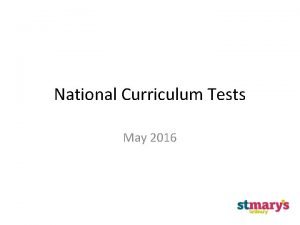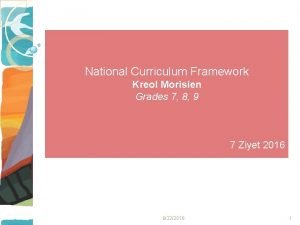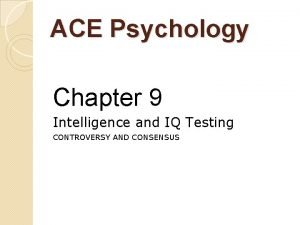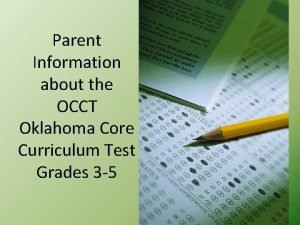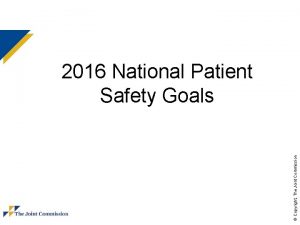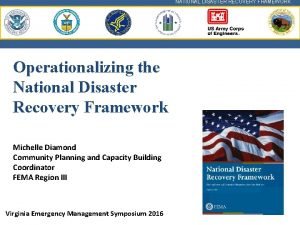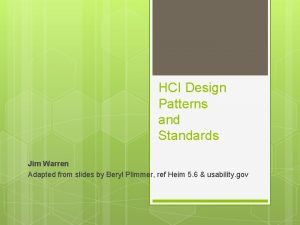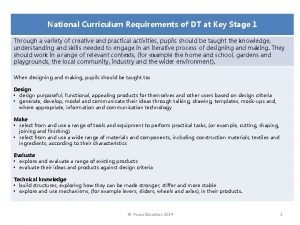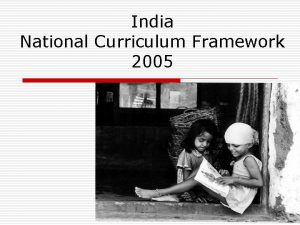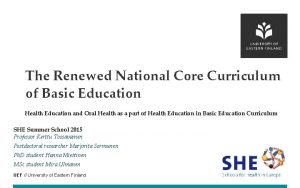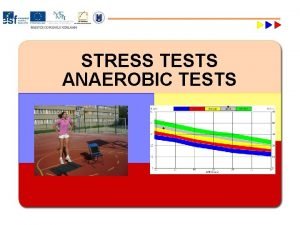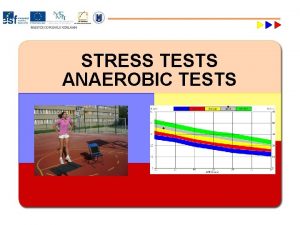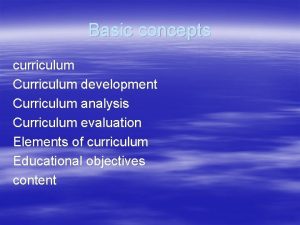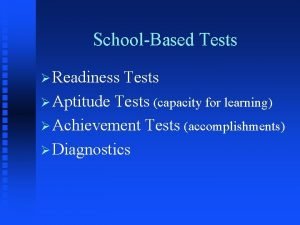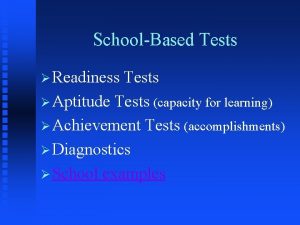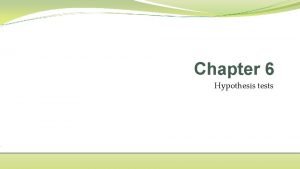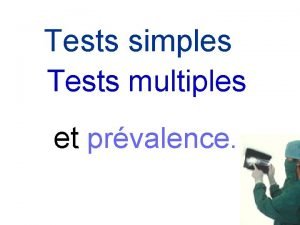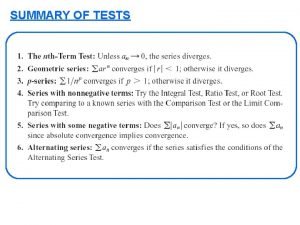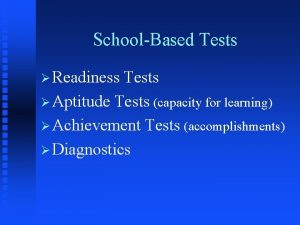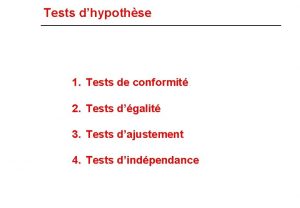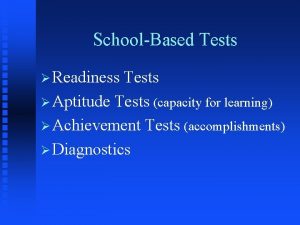National Curriculum Tests May 2016 National Curriculum Tests













- Slides: 13

National Curriculum Tests May 2016

National Curriculum Tests Key Stage 1 Key Stage 2 • Will be taken in May (from 16 th) • 2 reading papers • 1 Grammar and punctuation paper • 1 Spelling test • 1 maths arithmetic paper • 1 maths reasoning and problem solving paper • Will be taken 9 th – 13 th May • 1 reading test • 1 Grammar, punctuation and spelling paper • 1 Spelling test • 1 maths arithmetic paper • 2 maths reasoning papers

Key Stage 1: Reading • • • 2 papers 1 integrated reading and answer booklet 1 separate reading and answer booklet Both 20 marks All children should attempt both tests Teachers can stop them if they feel they can’t access the tests.

Key Stage 1: Grammar, punctuation and spelling • Spelling test – 20 words • Grammar, punctuation test: completing sentences, ticking the correct word, adding punctuation, matching words, using correct terminology to describe a word or a group of words, adding plurals etc.

Key Stage 1: Maths • Arithmetic Paper 1: 25 marks: No context – basic calculations. 20 mins • Reasoning Paper 2: 35 marks. Contextualised. Some aural questions.

KS 1: Writing • There is no writing test. • Teachers will make a judgement on whether children are working below, at or above the expected standard.

KS 1: Results • Tests are set externally but marked by teachers who know the pupils. • The results of the tests are converted into a scaled score where 100 is the expected standard. • Teacher assessments for reading, writing and maths will be one of 3 standards: working towards the expected standard, working at greater depth. • For science there is one standard: (working at. . )

KS 2 Timetable Date Test Monday 9 May KS 2 English reading test Tuesday 10 May KS 2 Grammar, punctuation and spelling test 1 & 2 Wednesday 11 May KS 2 Maths paper 1 (arithmetic) KS 2 Maths paper 2 (reasoning) Thursday 12 May KS 2 maths paper 3 (reasoning)

Key Stage 2: Reading • 1 Reading paper – similar to before. 1 hour • Greater focus on fictional texts. • Each test has 3 unrelated texts of increasing difficulty • 50 marks

Key Stage 2: Grammar, spelling and Punctuation • 2 tests: one focus on grammar and punctuation (short answer) and one on spelling. • Paper 1: 50 marks. (45 mins) • Paper 2: (spelling) 20 marks. • No writing test. • Greater focus on knowing and applying grammatical terminology

Key Stage 2: Maths • No mental maths test • One arithmetic paper. 30 mins. 40 marks. Questions are not contextualised. • Children need to work quickly. Children who know their tables and number bonds will be at an advantage. • Two reasoning papers. 40 mins each. 35 marks each.

KS 2 Writing • There is no writing test. • Teachers will make a judgement on whether children are working below, at or in greater depth.

What is reported to parents? • At the end of the summer term you will receive your child’s annual report. • This will include the results of their national curriculum tests. • It will tell you whether your child has been assessed as working towards the expected standard, at the expected standard or in greater depth in reading, writing and maths.
 2016 national curriculum tests
2016 national curriculum tests Opsionel
Opsionel Ace different help iq tests but
Ace different help iq tests but Oklahoma core curriculum tests
Oklahoma core curriculum tests Joint commission national patient safety goals 2016
Joint commission national patient safety goals 2016 National disaster recovery framework 2016
National disaster recovery framework 2016 Hci design patterns
Hci design patterns Chinese national curriculum core subjects
Chinese national curriculum core subjects Non statutory subjects national curriculum
Non statutory subjects national curriculum Dt national curriculum
Dt national curriculum Dance national curriculum
Dance national curriculum Ncf curriculum framework 2005
Ncf curriculum framework 2005 National curriculum framework 2005
National curriculum framework 2005 National core curriculum for basic education
National core curriculum for basic education
